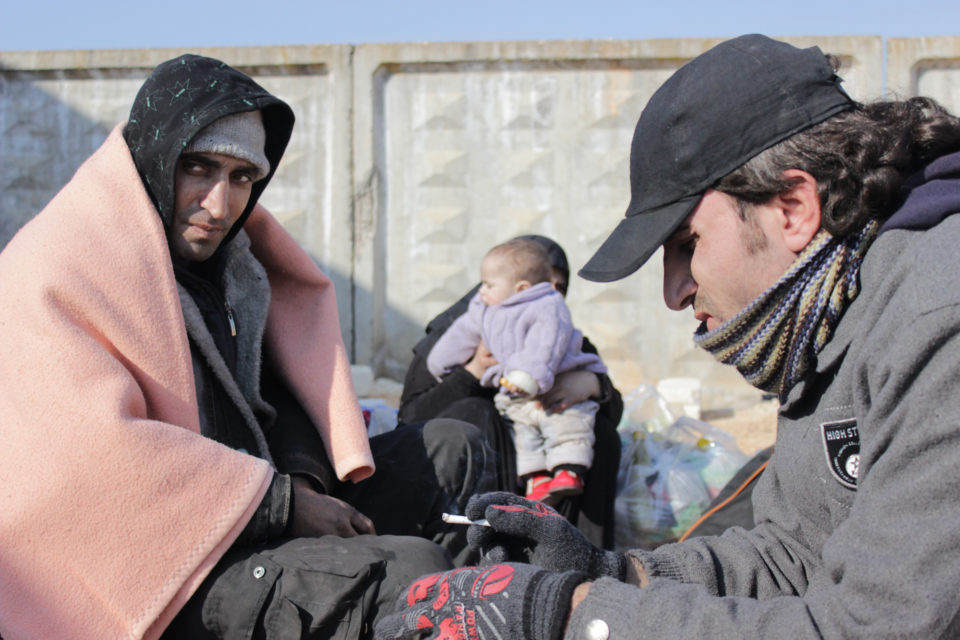 Stories
Stories
January 16, 2017 • 3 min read

"“Our lives were filled with fear and horror every moment of every day.”"
During the past almost six years of revolution in Syria, Firas Hamo (36) from Aleppo has seen his former life destroyed, his family deeply affected, and his city reduced to rubble.
Firas and his family recently fled Aleppo to northern Idlib, where he is a GOAL beneficiary. He recounted his experiences to GOAL staff members: “At the outset of the revolution, regime security forces almost immediately began opening fire on the protestors. They drove over us in cars and armoured vehicles, and made thousands of random arrests. At the time, I was a painter and had two brothers – one was a carpenter and the other worked in embroidery. We have no idea where my brother the embroiderer now is. He left Aleppo, and we have not heard of him since.”
As the fighting intensified, Aleppo became divided, with many of those who supported the democratic aims of the revolution taking refuge in the east of the city. Subsequently, the regime started shelling Eastern Aleppo with missiles, rockets and barrel bombs. Still, Firas says, the situation two years ago was much better than it became after Russia intervened on behalf of the regime. From this point onwards, he says, the air raids became more intense and the bombardments stronger: “They tried all types of weapons on us. It was as though we had become a test field. Our lives were filled with fear and horror every single moment of every day.”
As the east of the city was destroyed, and safe areas disappeared, Firas and his community were resolute in their determination to stay in their homes: “Staying in the city was better than displacement. Death was better than humiliation and homelessness”.
The price for this determined defiance soon became apparent: “A month ago, while I was sitting with my friends near my home, a plane dropped cluster bombs on us. Two of my friends died. I was taken to Alsakhoor hospital but it had been completely destroyed in the bombardments. I was then taken to another hospital, which had also been destroyed. I was left alone, without treatment, with a paper on which my name was written. I do not know how I was treated and how I survived. God saved me and treated me on that day. Fragments of shrapnel are still inside me, causing me terrible pain, particularly in the colder weather. I cannot get them out, so I suppose they will always be inside me.””Death was better than humiliation and homelessness.”
This wasn’t the first time Firas had been injured in a bombing: “Six months previously, I was injured when a missile destroyed our home and killed the birds I was breeding. Even animals did not survive the rockets and missiles. Because of the crippling eight-month military blockade around the city, there was no work so we had no source of income. We had to sell all our furniture in order to eat. We borrowed from anyone with extra food. The children were always hungry; days passed when we had nothing to eat.”
“When the regime forces came into our area, people ran from one neighbourhood to another. Both my mother, who has diabetes, and my daughter, who was very sick at the time, could not run. Sometimes we slept in street in this bitter cold, and at other times we slept in deserted houses. All the while, the bomber planes were flying overhead. We continued like this until we gathered in the Sief Aldola neighbourhood to wait for the green buses to take us away. Out of Aleppo, our home city, the place that we loved.
“We waited inside a crowded bus for 24 hours, without food. Eventually we were driven away to here [northern Idlib] where we know no-one. We escaped death, and now we do not know where to go. We lost our homes, which we had never left before. We only want to live in peace and sleep at ease.”
Firas Hamo
